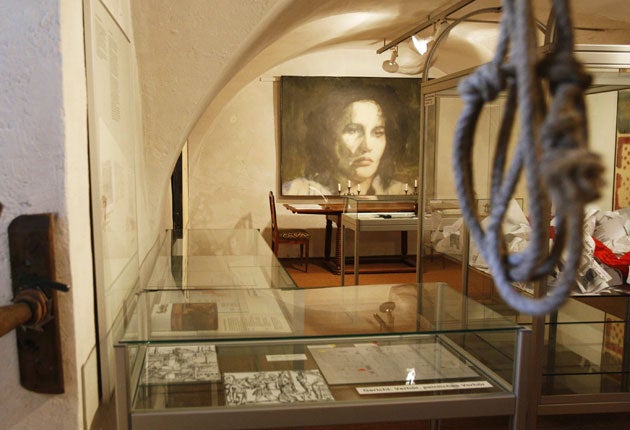Swiss finally clear the last 'witch' beheaded in Europe

Your support helps us to tell the story
From reproductive rights to climate change to Big Tech, The Independent is on the ground when the story is developing. Whether it's investigating the financials of Elon Musk's pro-Trump PAC or producing our latest documentary, 'The A Word', which shines a light on the American women fighting for reproductive rights, we know how important it is to parse out the facts from the messaging.
At such a critical moment in US history, we need reporters on the ground. Your donation allows us to keep sending journalists to speak to both sides of the story.
The Independent is trusted by Americans across the entire political spectrum. And unlike many other quality news outlets, we choose not to lock Americans out of our reporting and analysis with paywalls. We believe quality journalism should be available to everyone, paid for by those who can afford it.
Your support makes all the difference.Anna Goeldi was executed for being a witch more than 220 years ago, the last one beheaded in Europe. On Wednesday, the Swiss cleared her name. The parliament of the Swiss canton (state) of Glarus decided unanimously to exonerate Goeldi as a victim of "judicial murder", said Josef Schwitter, a government spokesman.
Several thousand people, mainly women, were executed for witchcraft between the 14th and 18th centuries in Switzerland, and elsewhere in Europe. Yet Goeldi's trial and beheading in the village of Mollis was in 1782, when witch trials had largely disappeared from the continent.
Goeldi, a maidservant for a prominent burgher, Johann Jakob Tschudi, was convicted of "spoiling" the family's daughter, causing her to spit pins and have convulsions. Yet Tschudi, a doctor and magistrate, was said to have had an affair with Goeldi; if that had come out, his reputation would have been seriously damaged.
The case was brought to light through a book by a local journalist, Walter Hauser. The move to exonerate came after a long debate in the eastern Swiss region, and was taken after talks with the Protestant and Roman Catholic churches. Last year, the canton's executive branch and the Protestant church council refused even to consider exoneration, but the Glarus parliament urged the executive branch to reconsider. In June, the Glarus executive branch asked parliament to ratify the exoneration.
The Glarus government said the Protestant church council, which held the trial, had no legal authority and had decided in advance that Goeldi was guilty. She was executed even though the law at the time did not impose the death penalty for non-lethal poisoning.
A museum featuring Goeldi opened in Mollis last year on the 225th anniversary of her death.
Join our commenting forum
Join thought-provoking conversations, follow other Independent readers and see their replies
Comments